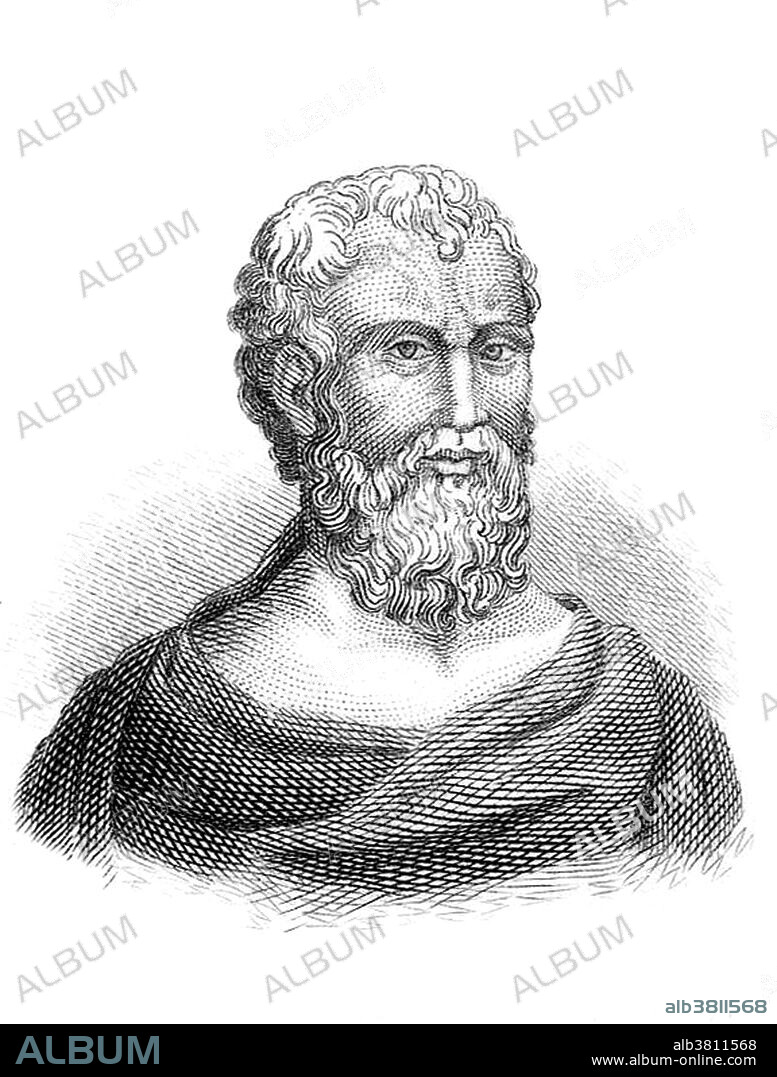alb3811568
Zeno of Citium, Ancient Greek Philosopher

|
Add to another lightbox |
|
Add to another lightbox |



Buy this image.
Select the use:

Title:
Zeno of Citium, Ancient Greek Philosopher
Caption:
Zeno of Citium (334 - 262 BC) was an Ancient Greek philosopher. He was the founder of the Stoic school of philosophy. Based on the moral ideas of the Cynics, Stoicism laid great emphasis on goodness and peace of mind gained from living a life of Virtue in accordance with Nature. It flourished as the dominant philosophy from the Hellenistic period through to the Roman era. He divided philosophy into three parts: Logic (rhetoric, grammar, and the theories of perception and thought); Physics (not just science, but the divine nature of the universe); and Ethics, the end goal of which was to achieve happiness through the right way of living according to Nature. He died around 262 BC. Laertius reports about his death: As he was leaving the school he tripped and fell, breaking his toe. Striking the ground with his fist, he quoted the line from the Niobe: "I come, I come, why dost thou call for me?" and died on the spot through holding his breath. Engraving by J.W. Cook, 1825.
Category:
ILLUSTRATION • black & white • Science: Personalities • History: Personalities
Credit:
Album / NYPL/Science Source
Releases:
Image size:
3187 x 4200 px | 38.3 MB
Print size:
27.0 x 35.6 cm | 10.6 x 14.0 in (300 dpi)
Keywords:
3RD BCE • 3RD CENTURY B. C. • 3RD CENTURY B.C. • 3RD CENTURY BC • 4TH BCE • 4TH CENTURY B. C. • 4TH CENTURY BC • ANCIENT GREEK • ANCIENT • ANTIQUITY • ART • ARTWORK • BLACK & WHITE • BW • CELEBRITIES • CELEBRITY • CLASSICAL • DRAWING • ENGRAVING • FAMOUS PEOPLE • FAMOUS • FIGURE • FOURTH CENTURY B. C • FOURTH CENTURY B. C. • FOURTH CENTURY BC • GRECO • GREEK • GREEKS • HELENICO • HELENISTICO • HELLENIC • HELLENISTIC PERIOD • HELLENISTIC • HISTORIC • HISTORICAL • HISTORY • HISTORY: PERSONALITIES • ILLUSTRATION • ILLUSTRATIONS • ILUSTRATION • IMPORTANT • LIFE OF VIRTUE • MALE • MAN • MEN • NOTABLE • PEOPLE • PERSON • PERSONALITIES • PERSONALITY • PHILOSOPHER • PHILOSOPHY • PORTAIT • PORTRAIT • POTRAIT • SCIENCE: PERSONALITIES • STOA • STOIC • STOICISM • WELL-KNOWN • WESTERN PHILOSOPHY • ZENO OF CITIUM • ZENO


 Pinterest
Pinterest Twitter
Twitter Facebook
Facebook Copy link
Copy link Email
Email
